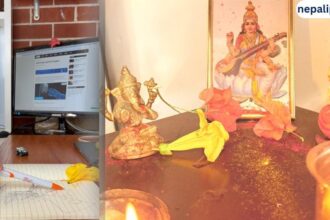Knowing Australian Etiquette helps you develop relationships among Aussie people while in Australia.
Every country has its own culture, language and customs. Those cultures differentiate native people from foreign ones. Immigrants are differently treated, differently looked at and experience different outlooks. Foreign nationals feel like outsiders in a new environment until they know how to behave appropriately. You might get bullied, teased or laughed at for your every reaction. To save yourself from such embarrassment, it is necessary to do enough research on the culture of a new country. If you have made up your mind to move to Australia, you should make idea of Australian etiquette, following social and business etiquette, if you follow these, it would help you to build relationships.
Read Also: Things about Australian Work Culture That Will Amaze You

Business Etiquette

Business Etiquette
While doing any business in Australia, you must remember Australians have a business version of their Australian Etiquette. There are many things Australians do better in business:
-Australians take punctuality very seriously. Never get late to your office, and don’t forget to apologise if you arrive late for work. Being ten minutes early is considered to be on time. Being late for work is unacceptable in Australia.
-Don’t spit or blow your nose in the public area. Could you make sure you use tissues?
– Say ‘excuse me’ if you happen to burp or blech in the public
-Wait patiently for your turn in a queue while taking food in a business meeting
.
-Treat everyone equally regardless of birth, religion and origin at work. Don’t display favouritism or nepotism.
-Hugging and kissing strangers is not acceptable.
-You should follow a proper dress code. A business suit or some intelligent dress is preferred.
You shouldn’t wear a T-shirt under the jacket to work.
-Speak up even if you have opinions different from your boss’s.
-Make your business conversation meaningful
-Australians do vast research on people before meeting them. Experienced people are held in high esteem
-Meetings are never arranged on Friday
-Using mobile phones in business meetings is considered unprofessional. Pay serious attention to what others say.
-Make eye contact while speaking; it is regarded as a positive gesture.
Read Also: Precautions to remain safe in Australia

Social etiquette
– While eating never say I am full. It means one is pregnant.
-Keep in mind that Barbecue is the most popular dish in Australia
-Australians hold a fork in their left hand and a knife in their right hand while dining. The knife and fork are laid parallel to one another across the right side of the plate when you finish up your meal.
-Generally, who invites the guest pays the bill in the restaurant
-You are supposed to help your meal host if you are invited to their homes for a meal.
– The dining table manners are putting your elbows off the table and hands above the table.
-If you are invited for meals carry flowers or a bottle of wine as a gift for your host.
-If anybody teases you it’s better to retreat or respond with kind words
– Laughing at somebody’s accent is rude.
– Don’t make the mistake of exchanging gifts in a first meeting
– Australians are very up to date with the latest fashion trends
-Address people with Mrs Mr and Ms during the first introduction
-Don’t forget to carry your identification documents while going on a holiday.
-Smoking, drinking or eating is unethical while driving or when at stores
— Australians don’t accept uninvited guests. Call before you meet someone
– Do not hug, touch, pat other men in public. It is a disrespectful gesture.
-Showing V for victory means to ask for two beers to the barman
English is a medium of communication but there are many standard terms you need to get used to. Australians use colourful language.
Read Also: How to develop yourself as a Real Estate Agent in Australia?
Some of the Australian slang
Afternoon – Arvi
Barbie – Barbecue
Mosquitos – mozzie
Hard yakka – Hard work
Crook – feeling ill
Flat-out – really busy day
Mate – friends
Shoot through – Leave the place or scene











